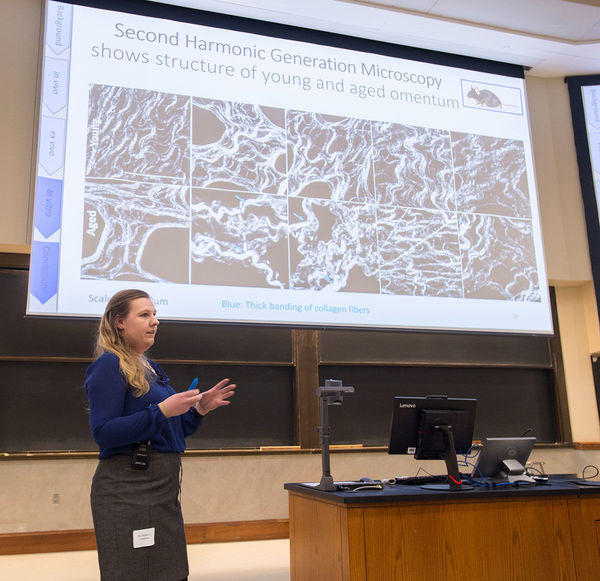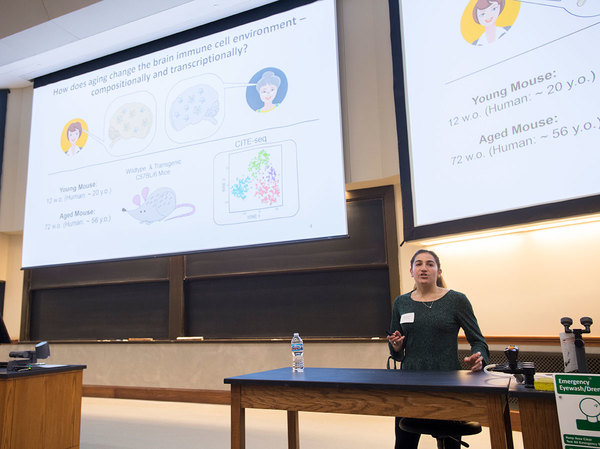
Dissemination of scientific research findings is an important last step in what happens in the lab or in the field, according to Matthew Ravosa, professor in the Department of Biological Sciences who holds concurrent posts in both the College of Engineering and College of Arts and Letters.
That’s one reason he instituted the Colleges of Science and Engineering Joint Annual Meeting (COSE-JAM) for graduate student and postdoctoral researchers. The third annual meeting in early December attracted postgraduate trainees who presented 25 oral and 55 poster presentations. In addition to the presentations, COSE-JAM featured a panel discussion and sessions where representatives spoke with students about jobs, grants, and entrepreneurship.
A significant number of presenters during COSE-JAM were women, Ravosa noted, as were the two moderators, Susan Lad and Abigail Weaver. Lad works in Ravosa’s lab, and Weaver works in the lab of Joshua Shrout, associate professor of civil and environmental engineering and earth sciences.

The event’s broad audience reflects the diversity of people whom scientists will encounter at other conferences and job interviews, Ravosa said. Projects ranged from investigating causes of cancer to the mechanics of walking.
“COSE-JAM represents an opportunity for peer-to-peer networking at a critical juncture when our trainees are carrying out some of their first research projects,” he said. “Being exposed to approaches outside of one’s field is important for providing novel insights into how to approach major outstanding problems.”
Elizabeth Harper, a fourth-year graduate student in the Integrated Biomedical Sciences program in the lab of M. Sharon Stack, the Ann F. Dunne and Elizabeth Riley Director of Harper Cancer Research Institute, and Kleiderer-Pezold Professor of Chemistry and Biochemistry, said she enjoyed participating in the meeting.
She gave an oral presentation about the role of aging in ovarian cancer metastasis. Metastasis, or the spread of cancer cells to distant sites, makes cancer more deadly, and the Stack lab has previously shown that aging increases metastasis.
Participating in COSE-JAM allowed her to learn about research outside her field. She said she also believes that seeing others’ research helps foster interdepartmental collaborations.
“Any chance I have to present my work in front of colleagues is beneficial,” Harper said. “I always get great questions that help me look at my research in a new way, and it helps efficiently build presentation skills.”
Samantha Golomb’s research involved a comparison between the immune environments of young and aged brains. She is a second-year graduate student in the lab of Siyuan Zhang, the Dee Associate Professor in the Department of Biological Sciences, who is affiliated with the Harper Cancer Research Institute.

“As a newer graduate student, this was an excellent opportunity for me to present my research in a more formal setting and a more diverse audience for the first time,” Golomb said. “Presenting at COSE-JAM was a great stepping stone as I begin to present my work outside of Notre Dame, at bigger meetings.”
In addition to having a chance to focus on career development and learn about funding opportunities, participants enjoyed the opportunity to spend time with other researchers they might not have met otherwise.
“The ability to efficiently share your work and network with other scientists is integral to any scientific career,” Harper said.